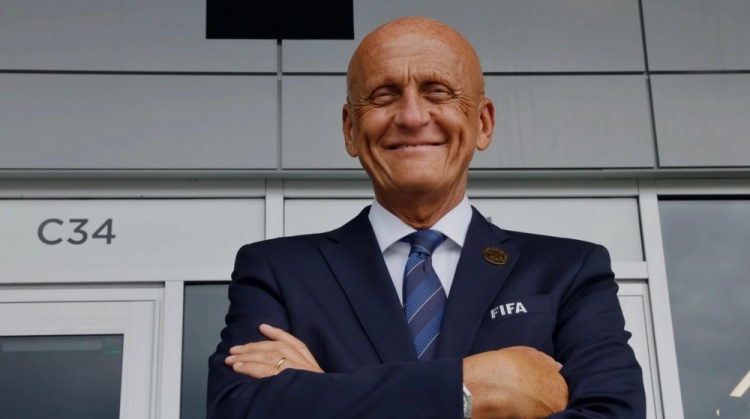
FIFA referee committee chairman Pierluigi Corina expressed satisfaction with the referee innovation introduced at the 2025 FIFA Club World Cup. These innovations include referees wearing mini cameras, improved semi-automatic offside detection technology, and an 8-second ball-holding rule designed to reduce goalkeeper delays.
The first World Cup of the club, with 32 teams participating, was the first time that FIFA had the referee wear a micro camera. Kolina said the new move has been widely welcomed. The main purpose of the experiment is to analyze whether broadcasting from the referee's perspective can bring a better viewing experience to TV viewers and fans on online platforms.
Korina: "The referee's wearing a micro camera exceeded all expectations. We thought it would be a fun experience for the audience, and we actually received very good feedback, and people even asked why we didn't apply it to all competitions and other sports."
This move not only improves the audience's entertainment experience, but is also very beneficial to FIFA. Corina: "This allows us to see the referee's vision on the court. We use it not only for the sake of entertainment, but also for training the referee and explaining why certain details are not visible on the court."
For example, in the group match between Atletico Madrid and Paris Saint-Germain, the referee failed to see the handball foul by the Atletico Madrid defensive player because another player blocked his sight. The footage captured by the mini camera can clearly see that the referee was unable to see the incident at that time. Finally, the video assistant referee (VAR) reminded the referee, who awarded Paris Saint-Germain a penalty after watching the replay on the sidelines.
In addition, the game also implemented the amendment of Rule 12.3, approved by the International Football Association Council (IFAB) at the 139th Annual General Assembly. The new regulations stipulate that if the goalkeeper controls the ball with his hands or arms for more than 8 seconds, the opponent will be awarded a corner kick. The referee will raise his hand to signal the countdown in the last 5 seconds. Previously, if the goalkeeper possesses the ball for more than 6 seconds, the referee will award the opponent an indirect free kick. The new rules effectively improve the pace of the game and reduce the delay time of goalkeepers.
The former referee explained that the new rules were a huge success and the pace of the game was significantly accelerated. In the past, the delay caused by the goalkeeper's long control of the ball with his hands has been greatly reduced. Under the new rules, only two goalkeepers were punished for violations, achieving their expected goals.
In addition, the upgraded semi-automatic offside detection technology also improves the efficiency of judging such fouls. Corina said the technology helps avoid situations where linemen only raise the flag after the offensive player runs 30 or 40 meters. When there is a noticeable offside, the assistant referee receives an alert faster than ever before, correctly canceling uncountable goals. He expressed great satisfaction in this because the technology did support the correct penalty.
As of now, in this competition, a total of 117 referees (including 35 referees, 58 assistant referees and 24 video assistant referees) have been assigned, from 41 member associations.
Corina concluded: "This is a wonderful event, showing a high level of football skills and professionalism. Both the performance of both the players and the referees have been recognized by the audience. I believe we have witnessed an unforgettable debut in the game."
Tỷ Số Trực Tuyến 7M